Book Recommendations
-
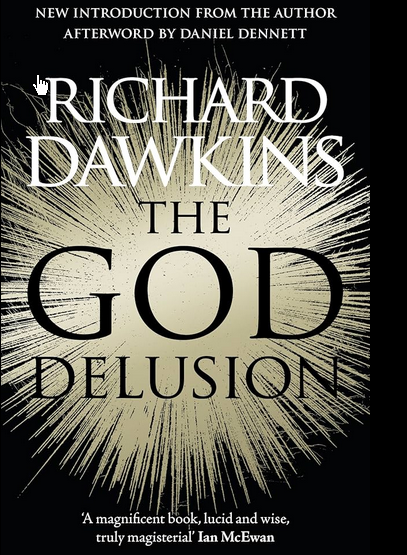
The God Delusion - Richard Dawkins
The God Delusion by Richard Dawkins argues that belief in God is irrational and that religion can be harmful. Dawkins critiques religious arguments, promotes a scientific and secular worldview, and explores morality without divine influence. The book encourages critical thinking and challenges the role of faith in society.
-
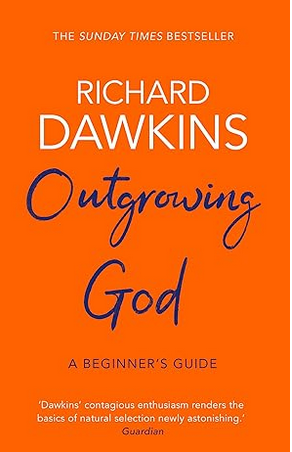
Outgrowing God - Richard Dawkins
Is an exploration of how and why people move away from religious beliefs as they mature, providing scientific explanations for the natural world and arguing for a secular approach to understanding morality and existence. It challenges readers to question their assumptions and to consider the world through a lens of reason and evidence rather than tradition or faith.
-
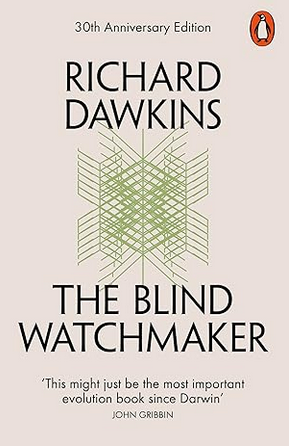
The Blind Watchmaker - Richard Dawkins
Is a strong defense of Darwinian evolution and a rebuttal to arguments that claim living organisms are too complex to have evolved without an intelligent designer. Dawkins uses clear explanations, vivid examples, and computer simulations to show how natural selection can explain the complexity of life. The book is a foundational text for understanding evolutionary biology and is an accessible and compelling argument for the scientific understanding of life on Earth, with a particular focus on explaining how natural processes, not divine intervention, account for the diversity and complexity of organisms.
-
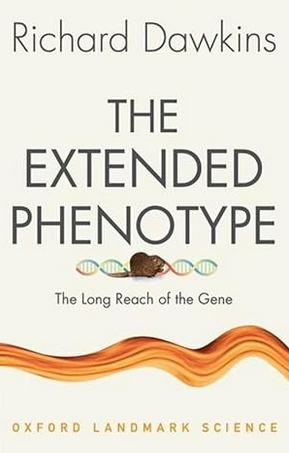
The Extended Phenotype - Richard Dawkins
In "The Extended Phenotype," Dawkins presents a profound shift in our understanding of evolution, suggesting that the influence of genes extends far beyond the organism's body and can shape the environment, other organisms, and ecological systems. He reinforces the idea that genes are the primary drivers of evolution, and that behaviors and traits that affect the world outside the organism are just as crucial to natural selection as the physical characteristics of the organism itself. The book challenges traditional ideas about the scope of evolutionary influence, offering a deeper and broader view of how natural selection operates in nature.
-

The Genetic Book of the Dead - Richard Dawkins
The "Genetic Book of the Dead" is a metaphor used by Dawkins to explain the persistence of genes through time. It highlights how, despite the death of individual organisms, genes continue to be passed down through generations, recording a kind of genetic immortality. This concept ties into Dawkins' broader argument in "The Selfish Gene" that genes are the primary units of natural selection and that all living organisms are essentially vehicles for their replication.Description goes here
-

The Greatest Show On Earth - Richard Dawkins
In the conclusion of "The Greatest Show on Earth," Richard Dawkins reinforces that evolution is a fact supported by overwhelming evidence from multiple scientific fields, including genetics, fossil records, and observed natural processes. He emphasizes that the complexity and diversity of life on Earth can be fully explained by natural selection and evolutionary theory, without the need for intelligent design or creationism. Dawkins argues that the idea of evolution should be embraced and appreciated, not just for its scientific validity, but also for its awe-inspiring power in shaping the natural world.
-

The Selfish Gene - Richard Dawkins
The Selfish Gene" revolutionized the way people understand evolution. By shifting the focus from individuals and species to genes as the central players in evolution, Dawkins provided a more comprehensive and compelling explanation of natural selection. The book also redefined how we view behaviors like altruism, suggesting that even seemingly selfless acts can be explained by the selfish motives of the genes involved. Dawkins' gene-centered view of evolution has had a lasting impact on both evolutionary biology and the broader field of science communication.
-
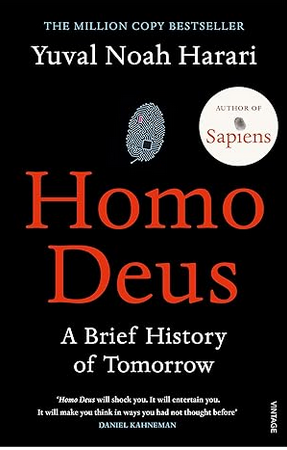
Homo Deus - Yuval Noah Harari
In "Homo Deus," Yuval Noah Harari explores the future of humanity in the face of technological progress, particularly focusing on the potential for humans to transcend their biological limitations and pursue goals like immortality, happiness, and god-like powers. While technology offers exciting possibilities, Harari also cautions about the risks and ethical challenges that come with such advancements. The book invites readers to reflect on the implications of becoming post-human and the potential consequences of achieving powers that could reshape what it means to be human.
-

Sapiens - Yuval Noah Harari
In "Sapiens," Harari offers a thought-provoking exploration of the history of humanity, challenging conventional narratives about progress and civilization. He suggests that while humans have made significant strides in terms of technological advancement, our self-created myths, social systems, and economic structures have also led to profound inequalities, environmental destruction, and challenges that humanity may struggle to address in the future.
The book encourages readers to reflect on the history of humankind from a broad perspective and to question how our past has shaped our present—and how our future might unfold as we continue to develop new technologies and grapple with complex global challenges.
-
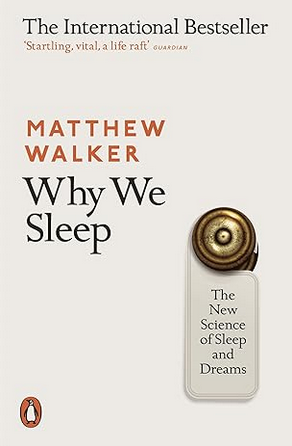
Why We Sleep - Matthew Walker
In "Why We Sleep," Matthew Walker argues that sleep is a fundamental and often overlooked component of human health. It is essential for memory, learning, emotional regulation, disease prevention, and overall well-being. The book raises awareness of the sleep crisis in modern society and advocates for prioritizing sleep in our daily lives. Walker emphasizes that sleep is not just a passive state but a highly active process with profound effects on the brain and body. By understanding the science of sleep and making it a priority, individuals can improve their health, cognitive performance, and quality of life.
-

The Origin Of Species - Charles Darwin
Darwin presented the theory of evolution by natural selection, which explains how species evolve and adapt to their environments over time. This revolutionary idea challenged existing beliefs about the origins of life and provided a naturalistic explanation for the diversity of life on Earth. The book not only reshaped the scientific understanding of biology but also sparked ongoing discussions about the nature of life, the role of humans in the natural world, and the relationship between science and religion.Description goes here
-
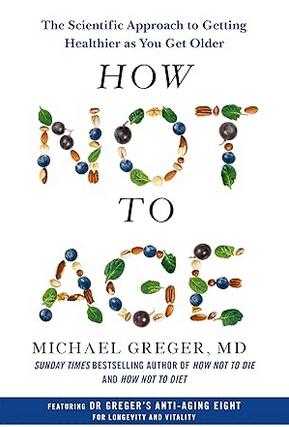
How Not to Age - Dr Michael Greger MD
How Not to Die" is a powerful call to action to take control of our health through better food choices. Dr. Greger argues that many of the diseases that kill us today are preventable, and in some cases, reversible, with the right diet and lifestyle. The book provides scientific insights into how food affects our health and offers practical advice for incorporating health-promoting foods into our daily routine. By focusing on plant-based, nutrient-rich foods, "How Not to Die" promotes a lifestyle that can help people live longer, healthier lives and avoid the common diseases that plague modern society.
-
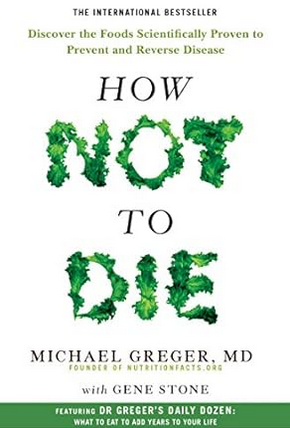
How Not To Die - Dr Michael Greger MD
How Not to Die" is a comprehensive guide to using food as medicine. Dr. Michael Greger highlights how many chronic diseases are preventable or reversible through dietary changes and offers a science-backed approach to living a healthier life. The book encourages readers to adopt a plant-based, nutrient-rich diet and offers actionable advice for improving health, reducing disease risk, and enhancing longevity. By focusing on a whole-food, plant-based lifestyle, Dr. Greger aims to help people make informed decisions about their health and well-being.
-
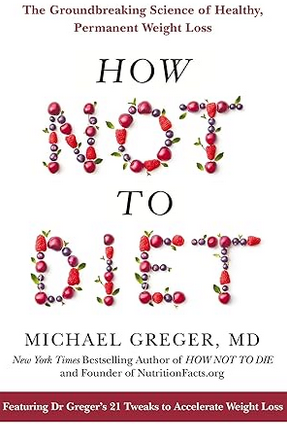
How Not To Diet - Dr Michael Greger MD
In "How Not to Diet," Dr. Michael Greger presents a scientific, evidence-based approach to weight loss, emphasizing that sustainable weight management comes from lifestyle changes, particularly through a plant-based, whole-food diet. Rather than focusing on restrictive diets, he advocates for making permanent changes to eating habits and adopting a healthy, balanced lifestyle. The book encourages readers to prioritize health over weight loss, with the understanding that healthy living will naturally lead to a healthy weight. Dr. Greger's approach to weight loss is holistic, addressing not just food, but also exercise, sleep, stress, and psychological factors to ensure lasting health benefits.
-
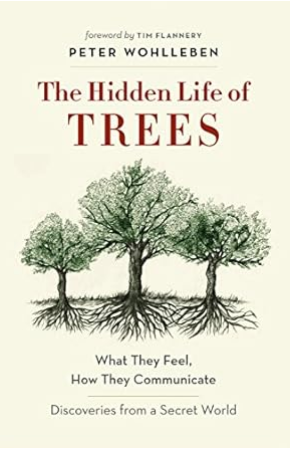
The Hidden Life of Tree - Peter Wohlleben
The Hidden Life of Trees" offers a deeply thought-provoking and poetic view of trees as living beings with complex social behaviors, emotions, and communication systems. Peter Wohlleben takes readers on a journey into the hidden world of trees, providing a fresh perspective on the environment and the interconnectedness of all living things. The book advocates for a more holistic and respectful approach to nature and encourages the protection and preservation of forests for future generations. Ultimately, Wohlleben’s work serves as a reminder that trees are not just silent, passive organisms but active participants in the world around us.
-

Nexus - Yuval Noah Harari
Nexus: A Brief History of Information Networks from the Stone Age to AI by Yuval Noah Harari explores how information networks have shaped human civilization, from ancient oral traditions to the rise of artificial intelligence. Harari examines the power of communication, its role in politics and society, and the ethical challenges posed by modern technology. The book connects historical trends with present-day digital transformations, offering insights into the future of information and its influence on humanity